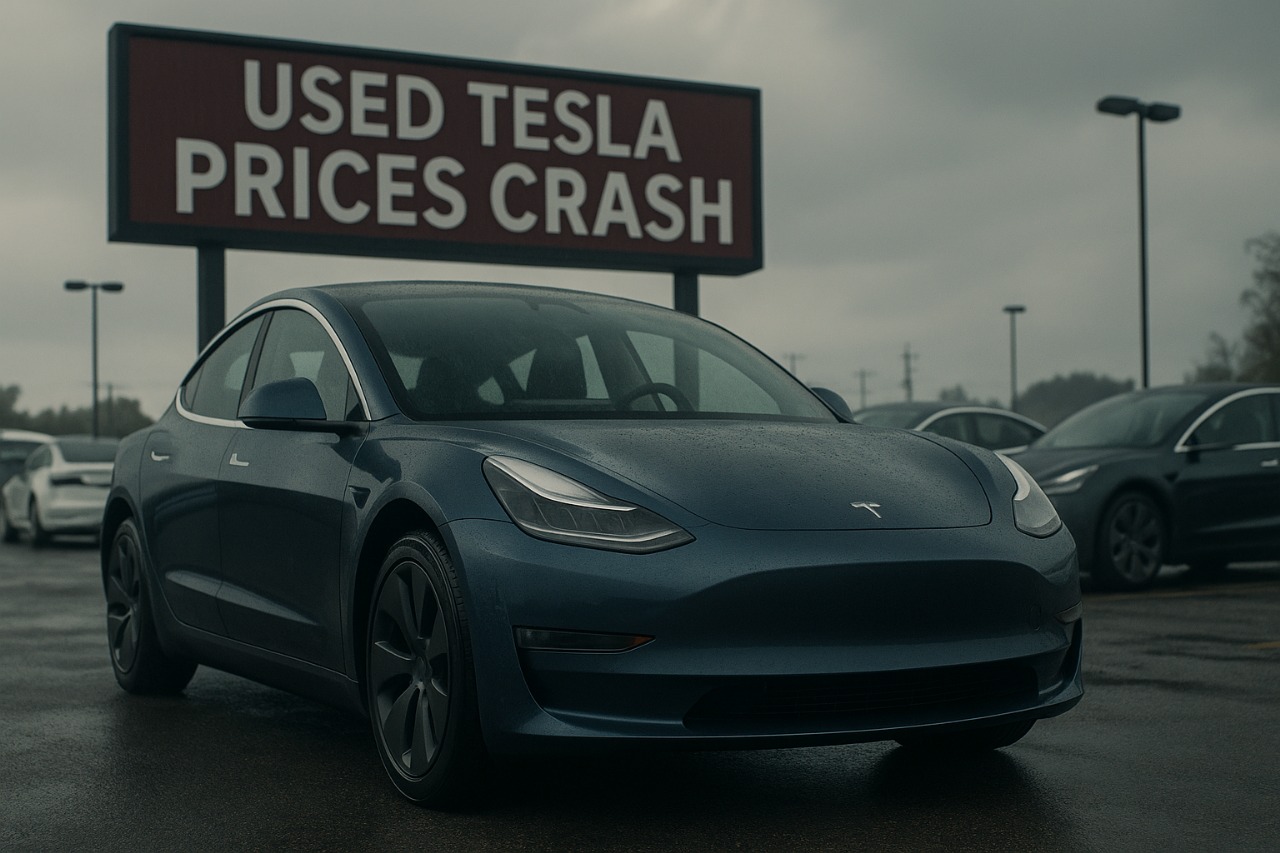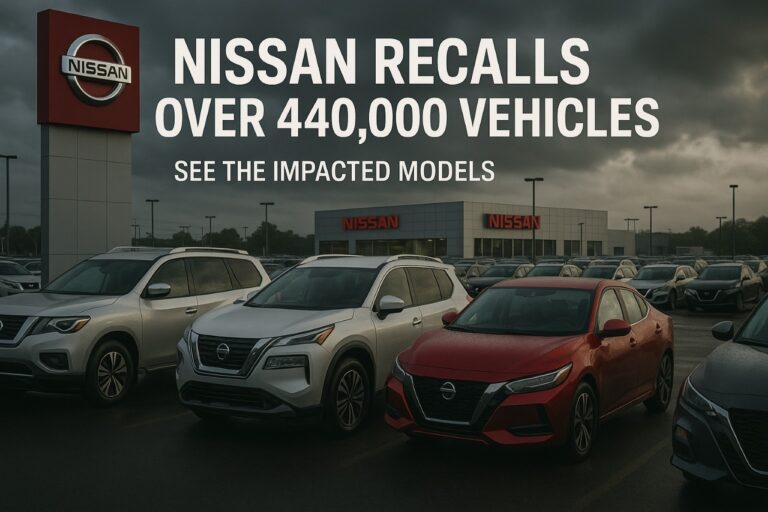“Used Tesla Prices Crash in New Report – Buyers Shocked by ‘Double Negative’ Brand Effect”
A Shocking Drop in Used Tesla Prices: What the Latest Study Reveals
The electric vehicle market is evolving rapidly, but not every shift is positive. A recent industry study has revealed a surprising trend — used Tesla prices are declining at a much faster rate than their gas-powered counterparts and even other electric vehicles. This unexpected dip in value is sparking concern among Tesla owners, investors, and auto analysts.
Unlike previous years where Teslas held their value remarkably well, this new data suggests the company is now facing a resale value crisis. According to the findings, Tesla appears to be suffering from what experts call a “double negative” brand effect — a combination of oversupply and changing consumer perception that’s hurting its used car market.
The Double Negative: Oversupply Meets Brand Fatigue
The term “double negative” in the study refers to two key issues impacting Tesla’s used car prices. First is oversupply. Tesla has been producing vehicles at record-breaking speeds, especially during and after the pandemic. While that may seem like a good thing on the surface, it’s resulted in a flood of used Teslas hitting the market, which naturally pushes down prices.
Second is brand fatigue and perception shift. Tesla, once viewed as a cutting-edge brand with an elite, tech-forward image, is now facing criticism related to build quality, customer service, and erratic public behavior by company leadership. For some potential buyers, these factors are starting to outweigh the car’s performance and tech perks.
How Much Are Used Tesla Prices Falling Compared to Rivals?
The study compared resale prices of Teslas to other EVs and traditional gas-powered vehicles. Here’s what the data showed:
Used Teslas have seen price drops of 25% to 35% year-over-year, depending on the model and condition. By comparison, brands like Toyota and Hyundai EVs only saw a 12% to 20% dip.
Even more interestingly, gasoline-powered luxury cars from BMW and Lexus held their value better than Tesla EVs — a reversal of trends from just a few years ago.
This depreciation is particularly alarming for Tesla owners who bought during the pandemic when prices were inflated. Now, as they attempt to resell, they’re discovering their cars are worth significantly less than expected.
What’s Causing the Sudden Devaluation of Teslas?
Several factors are working together to devalue used Teslas more rapidly than other vehicles.
Frequent price cuts on new Teslas by the company itself are undercutting the used market
High repair costs and limited third-party service options make buyers hesitant
Increased EV competition from brands like Ford, Hyundai, and Rivian is drawing attention away from Tesla
Changing consumer trust in the brand, especially among younger and environmentally-conscious buyers
This combination is what the study refers to as a “brand double negative” effect — once a brand becomes both overabundant and less aspirational, its market strength weakens dramatically.
What This Means for EV Buyers and Owners
For people considering buying a Tesla now, the lower used prices might seem like a good deal. But for current owners, this trend is troubling. Their vehicle’s value is dropping faster than anticipated, and future resale potential is becoming more uncertain.
It also signals a warning to the broader EV market — resale value matters, especially as consumers become more informed and cautious in the transition from gas to electric vehicles.
If Tesla wants to maintain its leadership in the EV space, it needs to address both product perception and market saturation before this double negative effect becomes irreversible.
Conclusion: Tesla Faces a Resale Value Challenge Unlike Ever Before
Tesla’s dominance in the EV space is being challenged, not just by new competitors but also by internal missteps. The new study clearly shows that the brand’s used car value is suffering due to both oversupply and consumer doubt — a potent mix that’s turning once-loyal fans into cautious skeptics.
For buyers, this presents both a risk and an opportunity. For Tesla, it’s a crucial moment of reckoning in how the company manages its identity and customer trust going forward.







